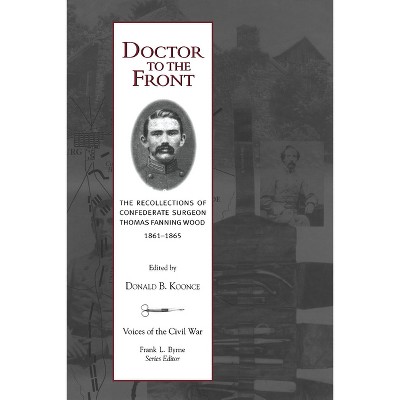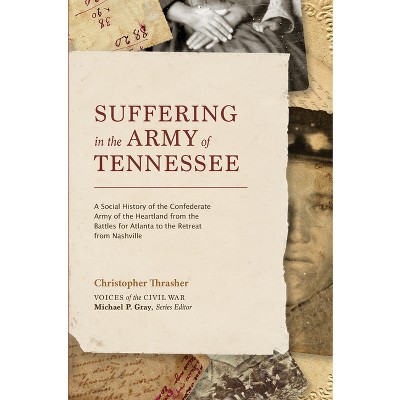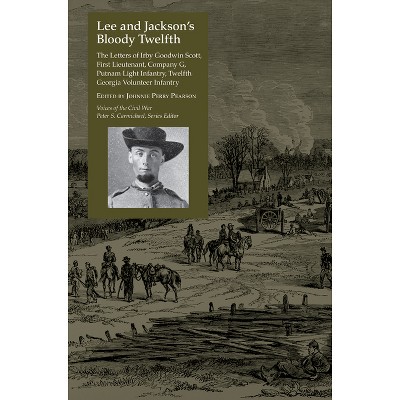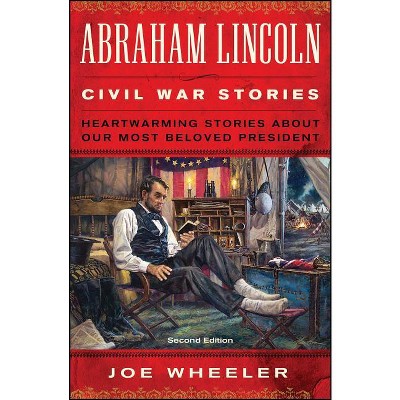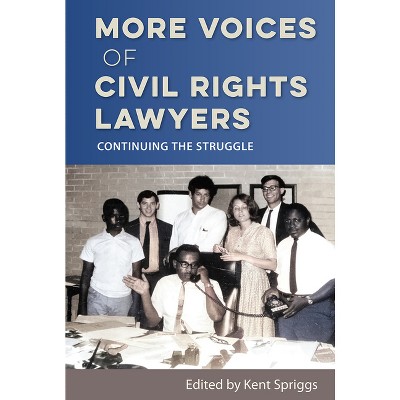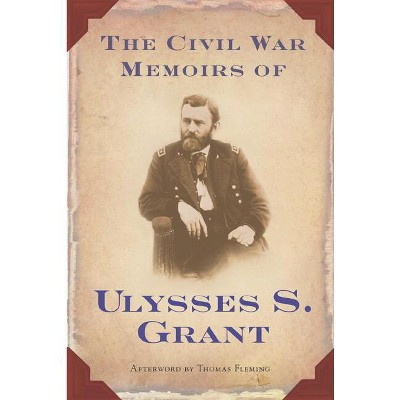Grant, Lincoln and the Freedmen - (Voices of the Civil War) by John David Smith & Micheal J Larson (Hardcover)

About this item
Highlights
- In 1863, General Ulysses S. Grant appointed one of his regimental chaplains, John Eaton of Ohio, as general superintendent of contrabands for the Department of the Tennessee.
- About the Author: JOHN DAVID SMITH is Charles H. Stone Distinguished Professor of American History at the University of North Carolina at Charlotte.
- 456 Pages
- History, United States
- Series Name: Voices of the Civil War
Description
About the Book
"This memoir is an annotated reprint of a book that was originally published in 1907. Its principal author, John Eaton (1829-1906), was a chaplain in Ulysses S. Grant's army who as early as 1862 was charged by Grant with setting up contraband camps for fleeing slaves. Eaton eventually became general superintendent of contrabands for the Department of the Tennessee, and his approach to humanitarian aid and educational efforts, even as war was raging, was one of the first systematic attempts to deal with how newly freed people would be assimilated into the Union as citizens following the war. Later, Eaton's efforts would be the basis for the Freedman's Bureau and its mandate to bring newly freed slaves into American society"--Book Synopsis
In 1863, General Ulysses S. Grant appointed one of his regimental chaplains, John Eaton of Ohio, as general superintendent of contrabands for the Department of the Tennessee. As the American Civil War raged, the former chaplain's approach to humanitarian aid and education for the newly freed people marked one of the first attempts to consider how an entire population of formerly enslaved people would be assimilated into and become citizens of the postwar Union. General superintendent Eaton chronicled these pioneering efforts in his 1907 memoir, Grant, Lincoln, and the Freedmen: Reminiscences of the Civil War, a work that for more than a century has been an invaluable primary source for historians of the Civil War era.
In this long-awaited scholarly edition, editors John David Smith and Micheal J. Larson provide a detailed introduction and chapter-by-chapter annotations to highlight the lasting significance of Eaton's narrative. These robust supplements to the 1907 volume contextualize important events, unpack the complexities of inter-agency relationships during the war and postwar periods, and present Eaton's view that the military should determine how best to assimilate the freed people into the reunited Union.
Grant, Lincoln, and the Freedmen presents a firsthand account of the challenges Grant, Lincoln, and Eaton himself faced in serving and organizing the integration of the newly freed people. This heavily annotated reprint reminds us just how important Eaton's recollections remain to the historiography of the emancipation process and the Civil War era.
Review Quotes
"John Eaton's recollections long have been an important resource for historians. Grant, Lincoln and the Freedmen is well worth reading and long has needed a thoroughly, thoughtfully, carefully annotated version. Now we have one." --Michael Green, author of Freedom, Union, and Power: Lincoln and His Party during the Civil War "John Eaton's post-Civil War reminiscences are one of most vivid and important windows we have ever had into the story of emancipation and the experience of formerly enslaved refugees. Eaton's narrative of the 'contraband' camps is rendered with extraordinary and moving detail; one comes away knowing and feeling the agony and triumph of the freedpeople. Smith and Larson have reached a rare achievement as well in editing and explaining this remarkable classic, giving us a journey into the abolitionist mind at war, as well as into historians plying their craft at the highest level." --David W. Blight, author of the Pulitzer Prize-winning Frederick Douglass: Prophet of Freedom "Superintendent of Contrabands John Eaton's powerful account of slavery's destruction in the Cotton Kingdom shines light on a simultaneous struggle against the Confederacy and humanitarian crisis in the Mississippi Valley. This invaluable, accessible edition bears testimony to how the formidable institution of U.S. slavery died a death nearly as violent as its long life had been."--Chandra Manning, Georgetown University "John Eaton's memoir is one of the most important primary sources on the American Civil War. Superbly edited by Larson and Smith, this book is essential to a full understanding of invading U.S. forces' ongoing military, political, economic, and most importantly, racial challenges. Extraordinarily effective in coordinating his work with President Lincoln and General Grant, Eaton valiantly managed the massive transition of African American families from slavery to freedom while supporting the war to save the Union and initiating the difficult process of Reconstruction."--T. Michael Parrish, Baylor University "John Eaton is finally getting his due. One of the most influential U.S. officials who led the nation through Emancipation, Eaton wrote what stands today as the best, single-volume account of the federal government's work to provide relief and assistance to formerly enslaved people. But Eaton's writing has dwelled in obscurity--until now. Thanks to Micheal J. Larson and John David Smith, whose deeply researched introduction offers important context and sets the stage for appreciating many facets of Eaton's work, this new edition breathes welcome life into the chaplain's words." --Amy Murrell Taylor author of Embattled Freedom: Journeys through the Civil War's Slave Refugee Camps
About the Author
JOHN DAVID SMITH is Charles H. Stone Distinguished Professor of American History at the University of North Carolina at Charlotte. He is the author of We Ask Only for Even-Handed Justice: Black Voices from Reconstruction, and coeditor, with Micheal J. Larson, of Dear Delia: The Civil War Letters of Captain Henry F. Young, Seventh Wisconsin Infantry.
MICHEAL J. LARSON formerly taught history in three Wisconsin school districts. He currently is an Adjunct Faculty member at Northwood Technical College, Rice Lake, Wisconsin, where he teaches U.S. History and Government.






